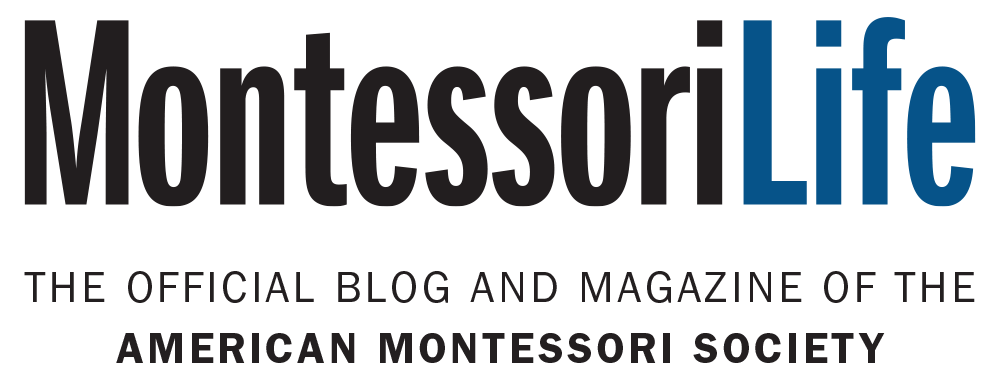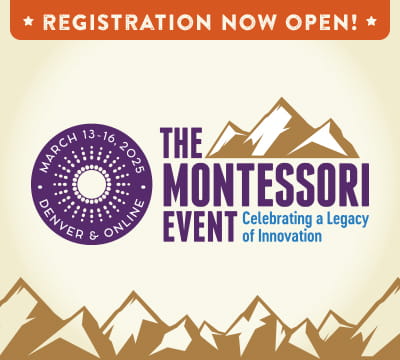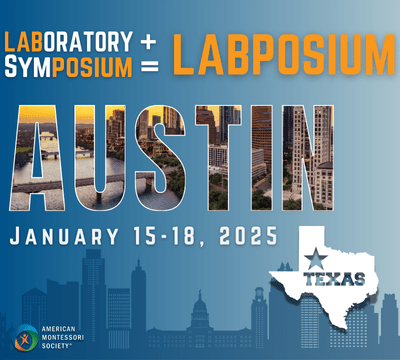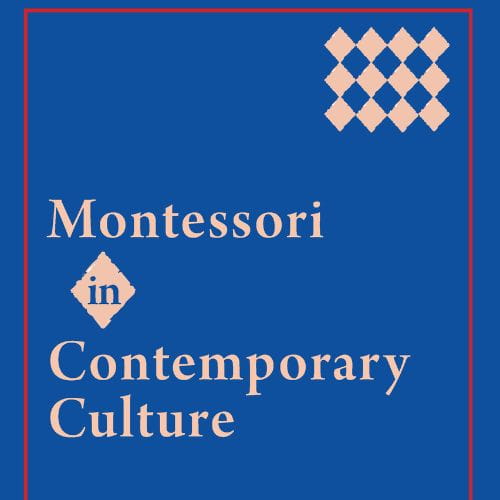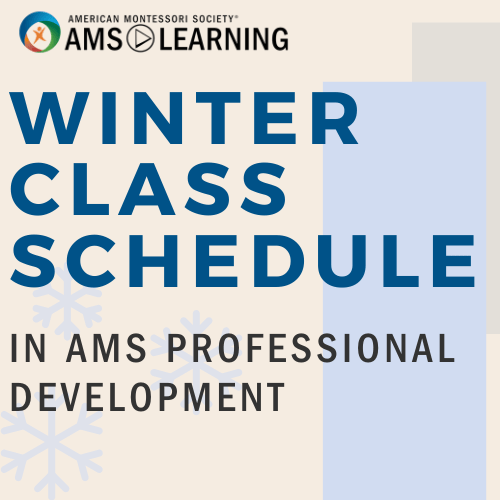AMS Leadership Labposium: Community, Collaboration, Creativity
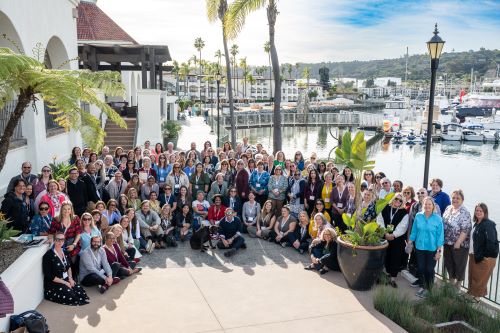
The American Montessori Society (AMS) welcomed 170 school and teacher education program leaders in San Diego, CA for the inaugural Leadership Labposium 2023. Jaime Casap, innovator, Google alum, and familiar face for many Montessorians as a keynote speaker from The Montessori Event 2022, served as the keynote speaker and facilitator for the Labposium. Jaime kicked off the week with a motivational message, inspiring innovation.
Leadership Labposium was designed “to support Montessori educators in identifying and prioritizing goals and challenges, questioning their own practices, and establishing frameworks for the evolution of Montessori.” In the words of Jana Morgan Herman, director of the Montessori Institute of Teacher Education at Endeavor (MITEE) and an attendee of Labposium, “[It] was a gathering of teacher educators and program/school leaders with the goal of creating space for us to be curious, revisit old ideas, explore new ideas, partner with each other, and participate in activities and sessions to expand and develop our praxis.” It provided an opportunity for participants to think about what Montessori will look like in the future, incorporating ideas of diversity, equity, and inclusion as they shared personal insights and innovations with others.
These activities and sessions took place over the course of several days, offering various opportunities for participants to explore how to build a sense of community amongst Montessorians, how to expand innovation in schools and teacher education programs, and how to build frameworks to guide schools and teacher education programs into collective, creative action. Attendees were also inspired to “expand innovation comfort zones” at the Curiosity Lab, where they engaged in active learning environments and creative spaces that facilitated collaborative problem-solving.
The Labposium Fair was another major part of the event in which attendees considered the current educational landscape and the children's needs for the future, determining the questions that need to be asked in order to allow educators to best serve children and adult learners into the future. In groups, participants developed a main question, considered the research needed to inform their question, and identified possible next steps towards actionable solutions. Each group’s presentation was presented in a fashion similar to a school science fair where all participants were able to walk around the room, listening to attendees share about their findings, ask questions, and leave comments. All of the information the groups gathered has now also been shared with the AMS Innovation Fellowship Think Tank, a group of 27 fellows who will sift through the questions as they spend the next year researching and developing an action plan for AMS to consider.
Labposium participants shared that one of the components of Leadership Labposium that they found most inspirational was the presentation by Jaime Casap. Attendee, Maria Eva Chaffin, shares, “I really enjoyed the keynote speaker and the messaging around the application of technology in the Montessori environment. I found it insightful, inspirational, and innovative.” Hearing strategies and perspectives from someone outside the Montessori community facilitated innovation in new and exciting ways.
Attendees share that the deep conversations, experiential activities, and exploration of creative endeavors that took place at Labposium were truly inspirational. When asked how the experience might influence one’s future practice, Jana shares, “I walk away with a greater desire to push boundaries, build an intentional community among training centers, and stay curious and intentional in my work.”
Another participant, Erika Ohlhaver, notes how powerful it is to see that AMS is thinking about the future of Montessori and the role leaders will play in the next 20 years. She shares:
I believe that this pedagogy is still relevant and has a place in today’s educational arena, but it may not look just like it does today. Just as our thoughts on Montessori’s implementation today are not exactly the same as they were 120 years ago. I believe we need to be intentional regarding our observations of what children are exposed to in this timeframe and look to how this impacts their future. This cannot be done if we, as trainers, teachers, and leaders, aren’t willing to take the risk to try something new.
It is this risk-taking, curiosity, and intentionality that Leadership Labposium was specifically designed to inspire in each and every one of the event’s attendees as they move forward in their daily practice. Labposium leaders hope that the open and honest conversations that took place at the event continue to motivate and inspire others in the field as their meaningful work, rooted in diversity, equity, and inclusion, is expanded and elaborated upon in preparation for the ever-evolving future of Montessori.
About the Author
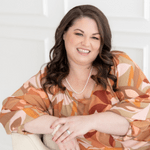
|
Heather White, EdS, is a Montessori coach and consultant, content creator, and educator for adult learners, as well as a moderator and manager for the Montessori at Home (0 – 3 years) Facebook group. Formerly, she was a Montessori teacher, in-home caregiver, Lower Elementary coordinator, and associate head of school. She also has experience as a school psychologist intern. She is AMS-credentialed (Early Childhood, Elementary I) and is a Nationally Certified School Psychologist (NCSP). Contact her at hpratt@stetson.edu. |
Interested in writing a guest post for our blog? Let us know!
The opinions expressed in Montessori Life are those of the authors and do not necessarily represent the position of AMS.

